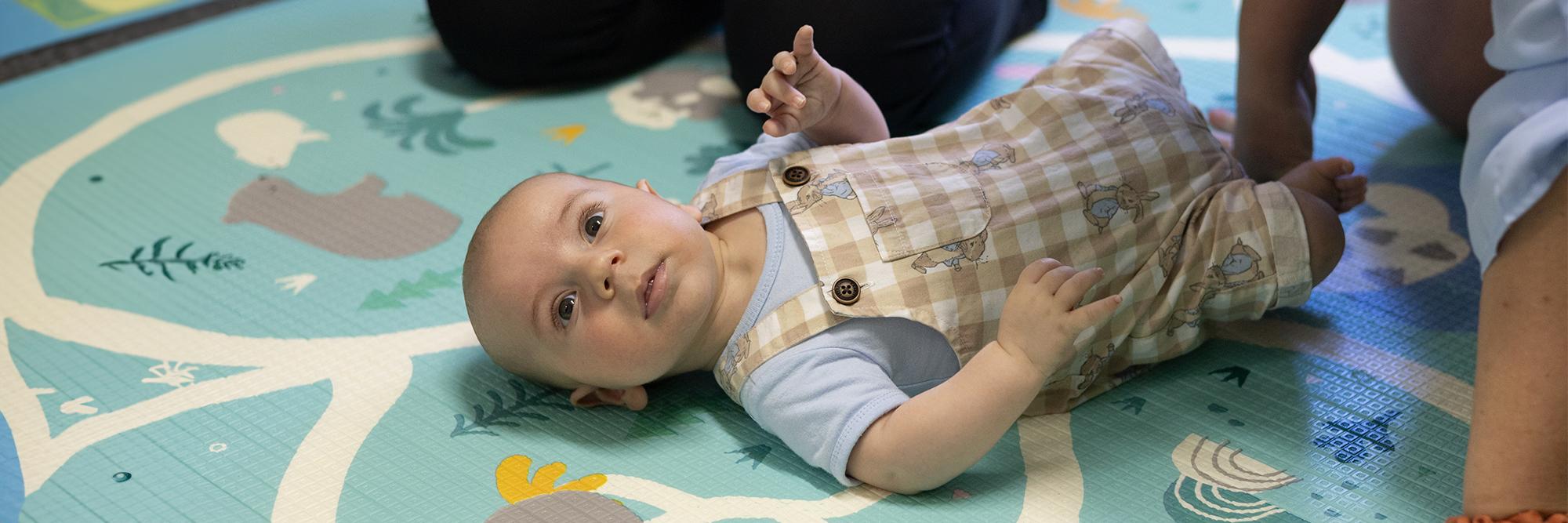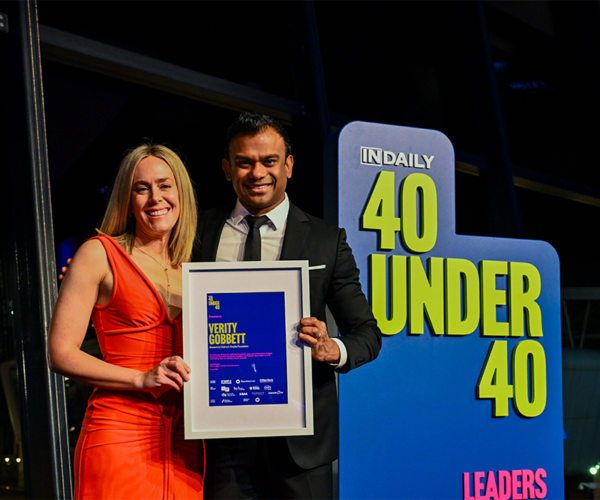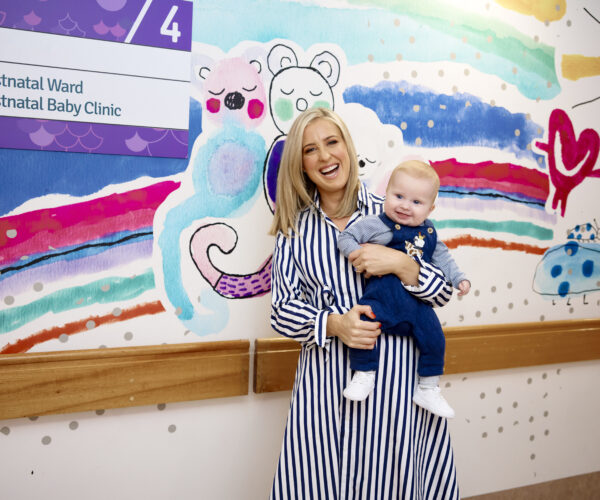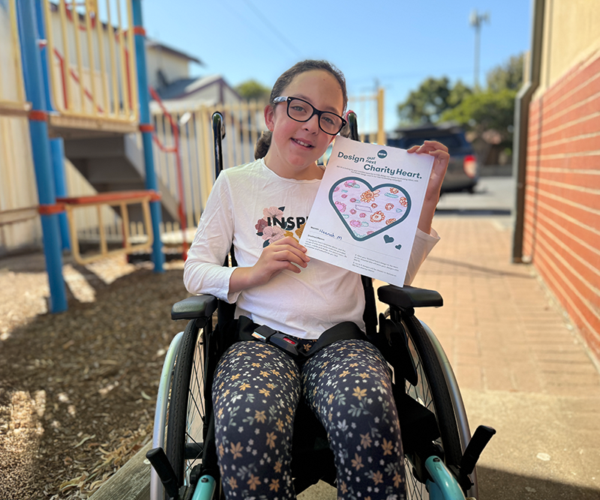At the beginning of 2023, the WCH Foundation Cocoon Program was launched at the Women’s and Children’s Hospital. A year on, more than 65 babies have been cared for by the Cocoon team, reducing the burden of regular hospital visits and enhancing patient experience.
The Cocoon Program provides specialist, coordinated care for some of South Australia’s most vulnerable babies – those under 12 months old who are medically vulnerable and either in foster care or at risk of entering it.
This is about more than providing general healthcare. It aims to meet the emotional, physical, and mental health needs of these vulnerable babies in one place, streamlining their care during their crucial first year.
For many caregivers, trying to navigate and access the support a baby may need can be complex and challenging. Not to mention attending multiple appointments with various health professionals, ensuring everyone is aware of the baby’s history so that their health and developmental needs are identified and met as soon as possible.
But now, thanks to the Cocoon Program, these caregivers can bring in their baby to be seen by a team of highly skilled health professionals, consisting of a neonatal paediatrician, general paediatrician, social worker, physiotherapist and a mental health clinician, and can be connected to any additional external agencies, such as disability services, to make care as seamless as possible.
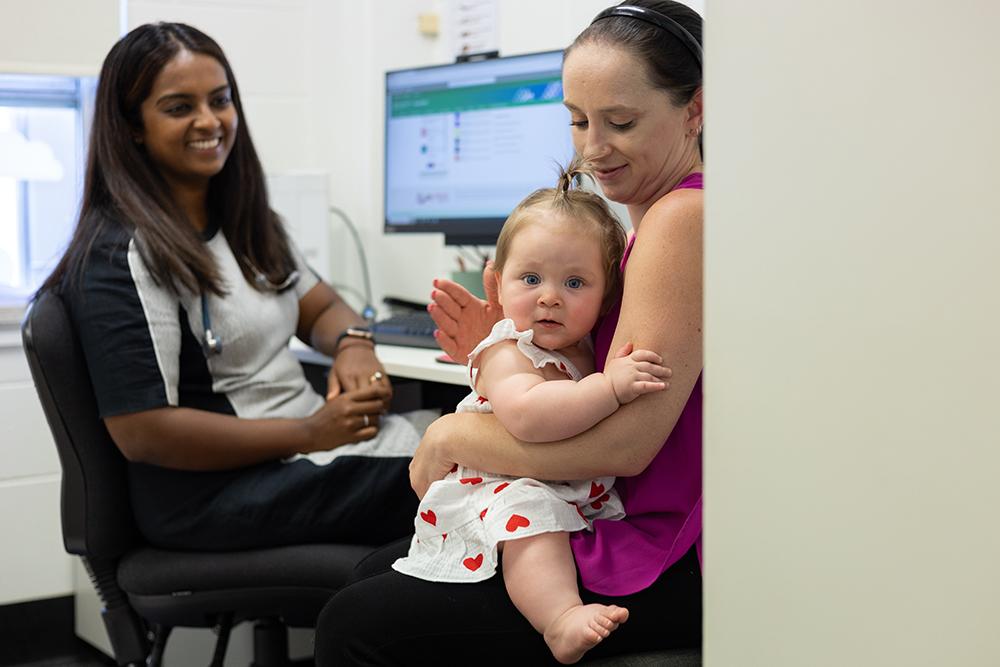
A child and mother representing Cocoon Program consumers with Malithi Hauser, Cocoon Program Paediatrician.
A year of difference
The demand for this program has exceeded expectations. With an ongoing caseload, the work is far from done.
The results have been encouraging so far. Dr Amy Keir says the team has uncovered a much greater unmet need for these young babes than they had originally anticipated.
She says, “Now that we’ve got more babies and more families in the program, we’ve got a better idea that most of those babies we see do have health and developmental challenges.”
“We’re also able to work with the foster families or kinship carers much earlier to understand the different needs that a baby might have.”

Families representing Cocoon Program consumers with Kirstie Morgan, Cocoon Program Physiotherapist.
Support for caregivers
Feedback from caregivers during this first year has been incredibly positive. We have received great responses about how simple and seamless it has become to access the support they need for an infant under their temporary or long-term care.
Kate* is a caregiver who has accessed the Cocoon Program for a number of babies since its inception. She and her partner receive babies as newborns, and usually have them under their care until they are six to seven months old.
These babies can be referred to the Cocoon Program for a number of reasons – feeding issues, failure to thrive, general developmental concerns, lack of hitting milestones or anything of this nature.
Kate and her partner have been fostering since 2012, and they have noticed a great difference in care since the Cocoon Program was implemented.
Kate says, “There is this level of continuity and consistency. Somebody is holding the entire case, which feels different.”
“I have access to a specialised and diverse team who can support the job I am doing, so that together we can achieve better outcomes for our vulnerable children.”
Carers like Kate visit the Cocoon Program every few months with the babies under their care and see everyone they need to on one day rather than visiting various clinicians on different days, reducing their time spent at hospital.
She says, “I think that it’s really important for our children who are in our care to be able to have access to this kind of speedy response to get the help that they need.”
Kate says the Cocoon Program has allowed her to no longer feel as though she is just a “temporary” carer, but instead a very important piece in a child’s early development.
She says, “I feel valued, I feel respected, I feel heard, I feel supported.”
Because of this, the Cocoon Program also allows carers to feel empowered to advocate for the children in their care so that they can receive the right care in a timely manner.
Kate says, “Being able to work with the team increases your awareness of things as a carer, so that when you get another baby, you have the confidence to say, ‘Wait, this isn’t normal,’ and talk to the right people to get a speedy response.”
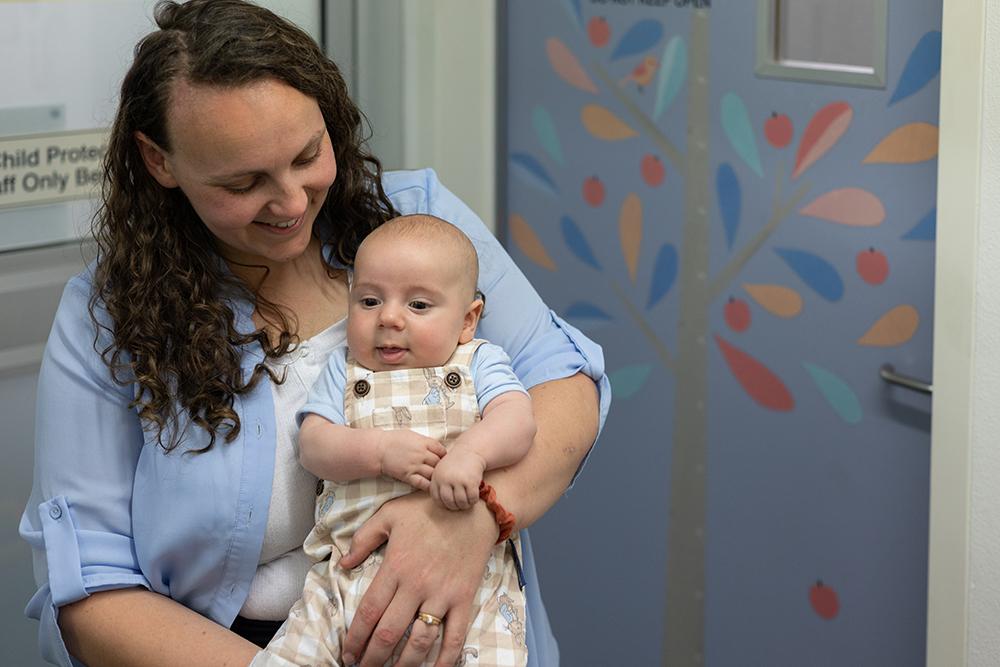
A child and mother representing Cocoon Program consumers.
Hospitals United for Sick Kids
The WCH Foundation has committed over $1 million to the Cocoon Program over three years.
Funds raised through the sale of Coles ‘Mum’s Sause’ products and donation cards, as part of the Hospitals United for Sick Kids (Hospitals United) initiative, make a significant contribution to the Cocoon Program’s cost.
Hospitals United helps kids get home from hospital sooner, and back to the things they love.
*Please note that while names and images have been changed for privacy, this situation is very real and reflects how important your generosity is for supporting brilliant care for vulnerable babies.

